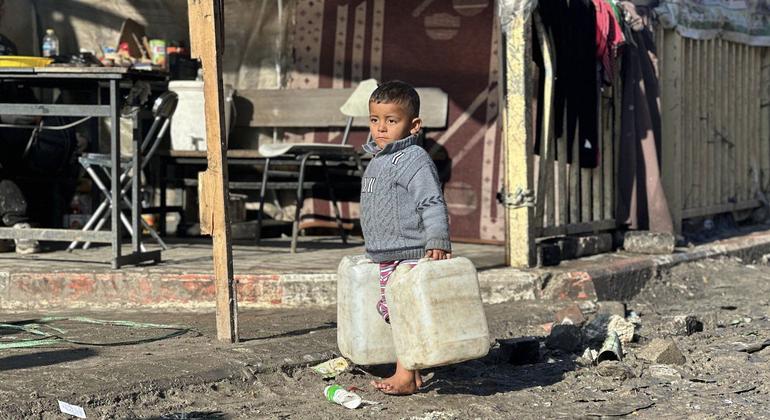Israeli authorities have not given a clear reason why, said OCHA Spokesperson Jens Laerke, speaking during the regular briefing by UN humanitarian agencies in Geneva.
“They very often deny and that is it, and it ends there. We do not get an explanation,” he said.
In a widely reported telephone call last Thursday between United States President Joe Biden and Israeli Prime Minister Benjamin Netanyahu, Israel committed to reopen the Erez border crossing into northern Gaza as well as facilitate aid delivery via the nearby port of Ashdod.
The White House said it would be watching closely but no date has been set by Israel to act and the concession over expanding routes into Gaza has yet to materialize, according to news reports.
Mr. Laerke was asked about the opening of more aid corridors, particularly the Erez crossing, but said as of Monday night, OCHA had not received any information that it had opened.
Denials and impediments
OCHA issued a report this week which said that restrictions and denials of planned aid movements by Israeli authorities continue to hamper the delivery of life-saving assistance to the shattered enclave.
During March, more than half of UN-coordinated food missions to high-risk areas requiring coordination with Israeli authorities were either denied or impeded.
Mr. Laerke was responding to journalists’ questions about the number of aid trucks entering Gaza and discrepancies between Israeli and UN figures.
The Israeli defense ministry unit that coordinates and facilitates humanitarian aid for Gaza, known as COGAT, counts trucks that it screens and sends across the border while OCHA counts trucks that arrive at its warehouses, and “between those two, there are issues.”
Comparison ‘makes little sense’
Trucks screened by COGAT are typically only half full, in line with its requirements, he said.
“When we count the trucks on the other side when they have been reloaded…they are full. Already there, the numbers will never match up,” he continued.
He explained that counting day to day and comparing numbers “makes little sense” as it does not take into account delays at the crossing and in moving to warehouses.
Israeli-imposed restrictions also prohibit Egyptian drivers and trucks from being in the same area at the same time as Palestinian drivers and trucks, so handovers are not smooth.
Access to north Gaza
Mr. Laerke stressed that moving aid inside Gaza “is another complication”, referring to the impediments and access denials.
“Food convoys that should be going particularly to the north, where 70 per cent of people face famine conditions, are more likely, actually three times more likely, to be denied than any other humanitarian convoy with other kinds of material,” he said.
He told journalists that aid distribution inside Gaza “is a major issue” due to security and safety reasons, and the breakdown of law and order.
“But we also stress that the obligation on the warring parties – and, in particular, I would say on Israel as the occupying power of Gaza – to facilitate and ensure humanitarian access does not stop at the border,” he said.



